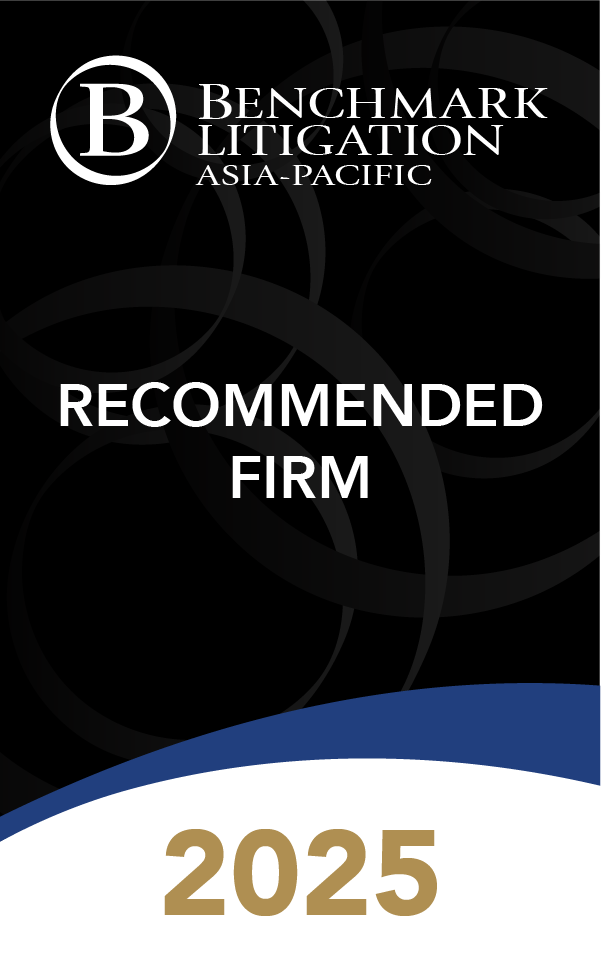May 15, 2025
Publications
Bad judgment or bad faith? A cautionary tale for Nominees

Persons who act as nominees in Voluntary Arrangements have a duty to act in utmost good faith. Where the nominee’s conduct of the creditors’ meeting is in bad faith, such that the nominee’s conduct is deficient, leading to a material irregularity at or in relation to the creditors meeting, the nominee may, in appropriate cases, be personally liable to pay the legal costs of affected creditors.
Individuals facing imminent bankruptcy proceedings have the option of attempting a Voluntary Arrangement (VA) pursuant to Section 45 of the Bankruptcy Act. The VA entails the debtor making a proposal to his/her creditors, usually involving a deferral of payment and a reduction in the total amount owed. The proposal is then voted on by creditors. If the proposal is approved by a special majority of creditors, the VA is then binding on all creditors. In this respect, the VA is not dissimilar to the Scheme of Arrangement regime for companies.
Key to the VA scheme is the role of the nominee. The nominee is a qualified insolvency practitioner who is appointed to oversee the VA process and to adjudicate creditors’ claims for the purpose of voting. However, as the nominee is usually proposed and paid for by the debtor (who has, in turn, already satisfied him/herself of the nominee’s sympathies to the cause), obvious questions often arise as to the impartiality of the nominee.
At the creditors’ meeting, the Nominee made 2 key decisions:
Several major creditors applied for a review of the Nominee’s decisions and conduct.
In determining that the proposal had not been passed at the creditors’ meeting, the Court made the following observations:
It should be noted that, in certain circumstances, nominees are protected from being made personally liable for costs. For example, Rule 84(10) of the Bankruptcy Rules provides that a nominee cannot be liable for costs even if his/her decision as to whether a creditor’s claim should be accepted or rejected for the purposes of entitlement to vote at a creditors’ meeting is wrong and reversed on appeal.
However, the protection under Rule 84(10) does not extend to conduct of the nominee which results in material irregularity in respect of the creditors’ meeting itself. This includes conduct which is in bad faith and/or a breach of the nominee’s duties in relation to the meeting.
Individuals facing imminent bankruptcy proceedings have the option of attempting a Voluntary Arrangement (VA) pursuant to Section 45 of the Bankruptcy Act. The VA entails the debtor making a proposal to his/her creditors, usually involving a deferral of payment and a reduction in the total amount owed. The proposal is then voted on by creditors. If the proposal is approved by a special majority of creditors, the VA is then binding on all creditors. In this respect, the VA is not dissimilar to the Scheme of Arrangement regime for companies.
Key to the VA scheme is the role of the nominee. The nominee is a qualified insolvency practitioner who is appointed to oversee the VA process and to adjudicate creditors’ claims for the purpose of voting. However, as the nominee is usually proposed and paid for by the debtor (who has, in turn, already satisfied him/herself of the nominee’s sympathies to the cause), obvious questions often arise as to the impartiality of the nominee.
In the case of Balbeer Singh Mangat and Sirjit Gill,[1], both Debtors applied for a joint voluntary arrangement (JVA). The Nominee appointed is a Senior Partner in the largest audit, tax and consulting firm outside the Big Four in Singapore. Having supported the Debtors’ JVA proposal, the Nominee convened a creditors’ meeting.
At the creditors’ meeting, the Nominee made 2 key decisions:
- The votes of creditors whose claims were marked “objected to” were not to be counted for the purposes of voting; and
- The result of the creditors’ vote could not be determined until the court had ruled on the correctness of the Nominee’s decision to mark certain creditors’ votes “objected to”.
Several major creditors applied for a review of the Nominee’s decisions and conduct.
In determining that the proposal had not been passed at the creditors’ meeting, the Court made the following observations:
- The Nominee had acted improperly in marking the creditors’ votes “objected to”;
- It was clear from Rule 84(6) of the Bankruptcy Rules that any creditor whose claim was marked “objected to” should nonetheless be allowed to vote and such vote should be counted for the purposes of determining whether the proposal had passed unless it was subsequently declared invalid by the Court. In this respect, the Nominee had acted improperly in excluding votes marked “objected to” and was in breach of his duty and responsibility. The Nominee’s actions defied logic;
- In leaving the decision as to whether the proposal had been passed to the Court, the Nominee was trying to evade his responsibility by “fudging the issues and his decision”.
It should be noted that, in certain circumstances, nominees are protected from being made personally liable for costs. For example, Rule 84(10) of the Bankruptcy Rules provides that a nominee cannot be liable for costs even if his/her decision as to whether a creditor’s claim should be accepted or rejected for the purposes of entitlement to vote at a creditors’ meeting is wrong and reversed on appeal.
However, the protection under Rule 84(10) does not extend to conduct of the nominee which results in material irregularity in respect of the creditors’ meeting itself. This includes conduct which is in bad faith and/or a breach of the nominee’s duties in relation to the meeting.
[1] HC/OSB 122/2017 and HC/OSB 123/2017. The Debtors in both cases were subsequently adjudged bankrupts. The Court’s decisions in both cases are currently on appeal to the Court of Appeal.



